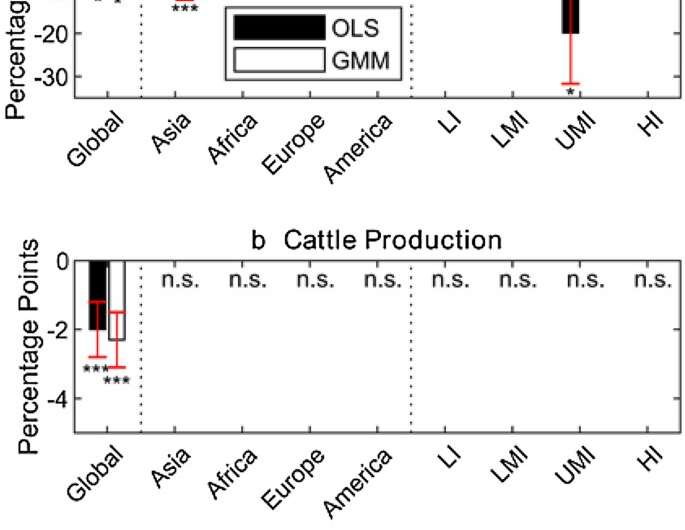Financial crises reduce deforestation rates, finds new global research

For the first time it has been demonstrated that financial crises reduce deforestation rates—according to new Sussex research
In the paper, Sussex researchers studied the impacts of financial crises on deforestation by analyzing data from 150 countries during more than 100 periods of financial crises in the twenty-first century. Additionally, the principle drivers of deforestation including timber, cattle and cocoa production, also decrease during periods of financial crises.
The researchers found that although deforestation rates decrease in times of financial instability, the rates vary from region to region with larger effects in Asia and Africa and in low-income countries. It has been found that financial crises will affect lower income country deforestation rates more due to more sustained pressure on commodity-driven deforestation.
With financial crises recognized by the UN as a very real threat to the global development agenda, this research makes a compelling case that we cannot rely on a reduction in economic activity to lessen environmental impacts.
Alexander Antonarakis, Associate Professor in Global Change Ecology in the School of Global Studies, and lead author of the paper, said:
"There are wider implications here. We cannot continue degrading the environment during financial boom periods. It is vitally important that we rethink our current economic model to find long-lasting connections between sustainable food and maintaining sustainable ecosystems, such as forests.
"As we have seen during the COVID pandemic, a reduction in economic activity can be beneficial for some environment indicators, allowing for air pollution and greenhouse gas emissions to decrease, at least in the short term. Yet, the UN has declared that the pandemic has potentially reversed hard-won environmental progress, with land degradation continuing, huge numbers of species risking extinction, and unsustainable production and consumption.
"Our findings point to a temporary reprieve in global deforestation dynamics during periods of financial crises. Yet, to break this link between economic performance and natural resource extraction, governments, corporations, industries, and the finance sector need to enhance their sustainable forest management during and after crisis periods rather than let it slip down national agendas.
"Furthermore, enhancing synergies between the climate and sustainable development agendas is critical in the beginning of the 2020s with fewer than 10 years left to achieve the Sustainable Development Goals."
Andreas Antoniades, co-author of the study and Associate Professor in Global Political Economy in the School of Global Studies, added:
"Our hope is that we can use our evidence to press and guide the global community on the data and policies needed to improve our understanding of key forest cover dynamics that determine the planet's environmental sustainability. "
The paper, titled "The effect of financial crises on deforestation: a global and regional panel data analysis," was published in Sustainability Science last month.
More information: Alexander S. Antonarakis et al, The effect of financial crises on deforestation: a global and regional panel data analysis, Sustainability Science (2022). DOI: 10.1007/s11625-021-01086-8
Journal information: Sustainability Science
Provided by University of Sussex




















